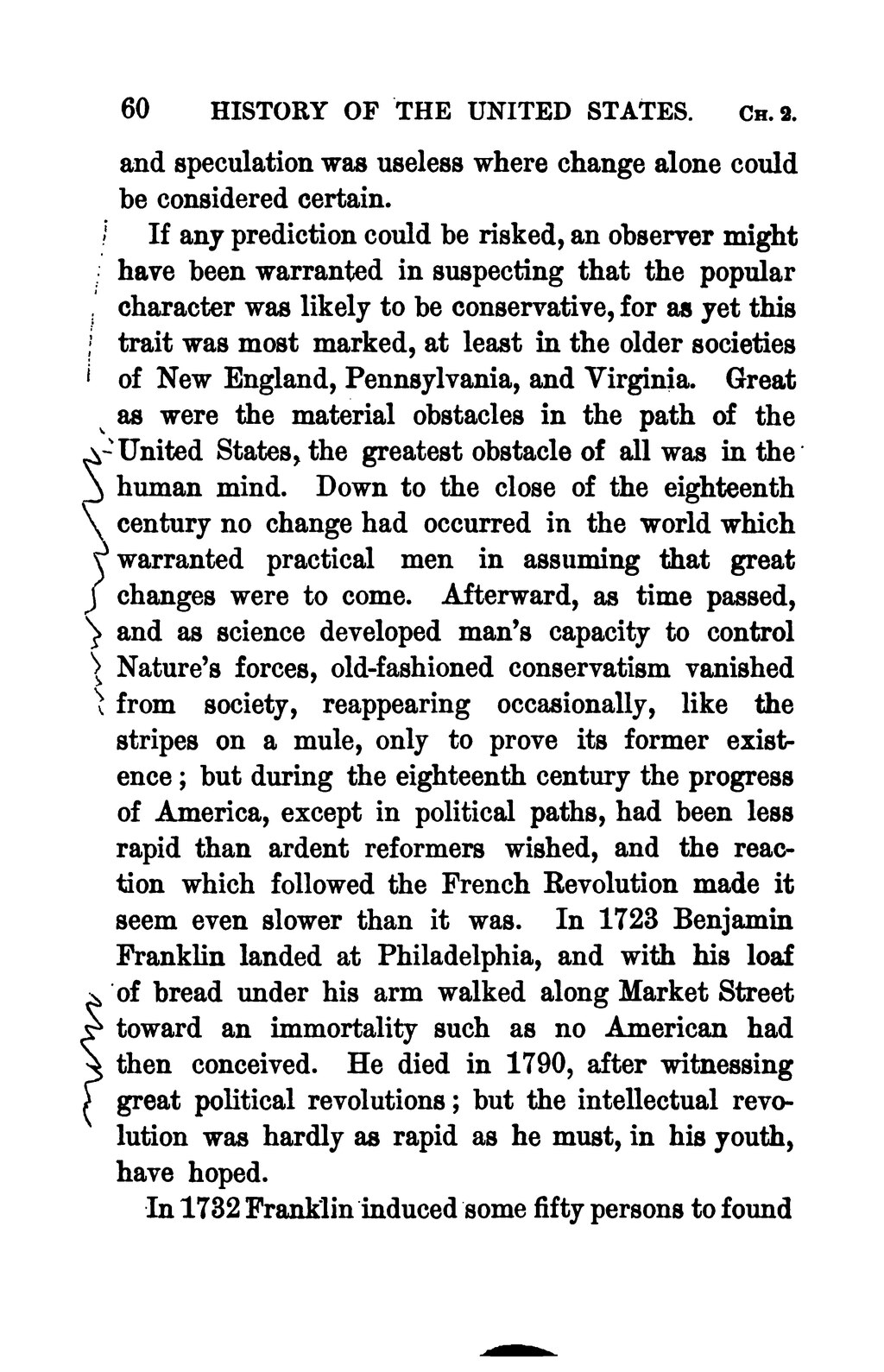and speculation was useless where change alone could be considered certain.
If any prediction could be risked, an observer might have been warranted in suspecting that the popular character was likely to be conservative, for as yet this trait was most marked, at least in the older societies of New England, Pennsylvania, and Virginia. Great as were the material obstacles in the path of the United States, the greatest obstacle of all was in the human mind. Down to the close of the eighteenth century no change had occurred in the world which warranted practical men in assuming that great changes were to come. Afterward, as time passed, and as science developed man's capacity to control Nature's forces, old-fashioned conservatism vanished from society, reappearing occasionally, like the stripes on a mule, only to prove its former existence; but during the eighteenth century the progress of America, except in political paths, had been less rapid than ardent reformers wished, and the reaction which followed the French Revolution made it seem even slower than it was. In 1723 Benjamin Franklin landed at Philadelphia, and with his loaf of bread under his arm walked along Market Street toward an immortality such as no American had then conceived. He died in 1790, after witnessing great political revolutions; but the intellectual revolution was hardly as rapid as he must, in his youth, have hoped.
In 1732 Franklin induced some fifty persons to found
